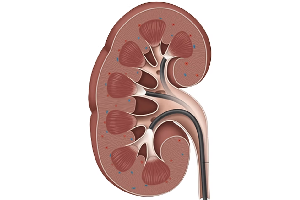At Preeti Kidney Hospitals, we offer advanced Retrograde Intrarenal Surgery (RIRS) for the treatment of kidney stones and other intrarenal conditions.
Our skilled urologists are experts in this minimally invasive procedure, ensuring effective treatment with reduced recovery times and enhanced patient comfort.

Retrograde Intrarenal Surgery (RIRS) is a cutting-edge, minimally invasive procedure used to treat kidney stones and other abnormalities within the kidney.
During RIRS, a flexible ureteroscope is inserted through the urethra and bladder, advancing up to the kidney. This allows the surgeon to visualize and treat stones or other intrarenal conditions directly without the need for external incisions.


After RIRS, patients may experience mild discomfort or a burning sensation during urination, which typically subsides within a few days. Our team provides detailed postoperative instructions, including: